- Korea expands renewables cooperation with UAE with new agreements. (Renewables)
- Masdar partners with Dutch firms to explore hydrogen exports to Europe. (Green Hydrogen)
- Saudi Arabia and the UK set to collaborate on mining critical minerals. (Minerals)
- Saudi Arabia’s EV battery production industry gets a boost from Australia. (Minerals)
- KSA launches the world's largest microgrid battery storage facility. (On Our Radar)
- The world’s largest dams are facing water storage losses due to sediment. (Danger Zone)
- Can we harvest solar energy from space? (On Your Way Out)

Monday, 16 January 2023
UAE inks raft of renewables agreements with Korea
TL;DR
WHAT WE’RE TRACKING TODAY
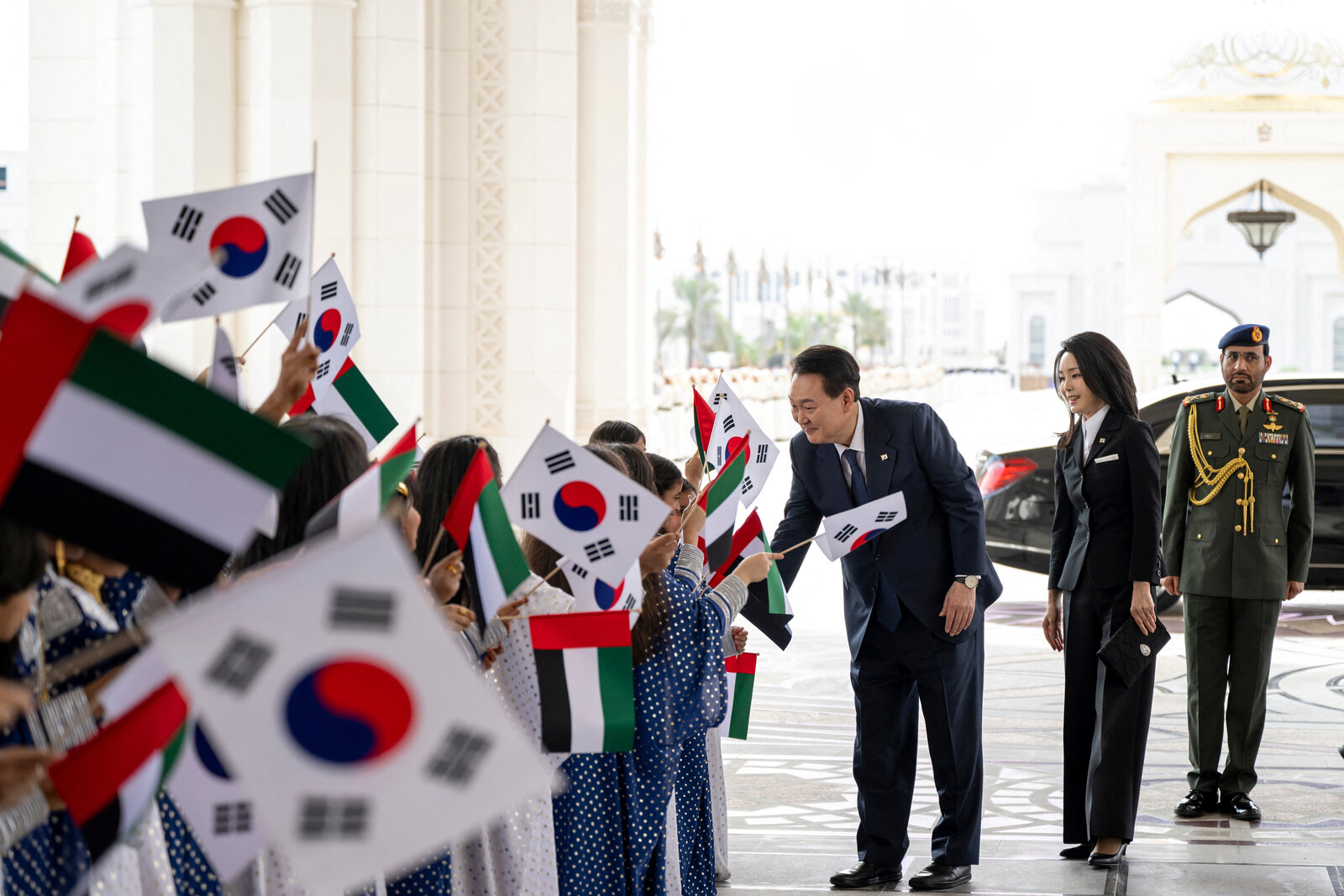
Good morning, nice people. We’re kicking off a new business week with a few key updates from UAE and Saudi Arabia, and an update on agreements from last week’s mining forum in the Kingdom. Let’s jump right in.
THE BIG CLIMATE STORY- South Korea and the UAE signed 13 MoUs at Abu Dhabi Sustainability Week yesterday, including a comprehensive energy partnership covering renewables and a potential carbon market. UAE’s Masdar also signed an agreement with the Netherlands to explore the possibility of green hydrogen exports to Europe.
^^ We have chapter and verse on these stories and more in the news well, below.
HAPPENING TODAY– The World Economic Forum is kicking off today in Davos, Switzerland and running until Friday, January 20. The annual meeting convenes world leaders, industry veterans, and business leaders to discuss priorities for the year ahead and ramp up public-private cooperation.
THE BIG CLIMATE STORY OUTSIDE THE REGION- The gig is up, Exxon: Long-held suspicions that scientists working for oil giant Exxon identified the threat of global warming as early as the 1970s have been proven correct, according to new research published in the journal Science on Friday. The research analyzed 100+ internal documents and publications produced in-house by Exxon or co-authored by Exxon scientists in independent publications from 1977-2014. It shows that Exxon “correctly and skilfully” predicted that fossil fuel emissions would cause global heating of around 0.2°C a decade — even as the company publicly cast doubt on the causal link. The story is seeing widespread coverage in the international press: Bloomberg | CNBC | LA Times | CBC | New York Times | Guardian | CNN | Harvard Gazette | BBC | Washington Post
ALSO- Climate activists took to the streets of Davos yesterday to protest the role of Big Oil at the World Economic Forum, Reuters notes. Representatives of BP, Chevron and Saudi Aramco are among the 1.5k business leaders gathering for the summit, the outlet adds.
OVER IN COP LAND- This year’s COP28 officially has a president: Adnoc and Masdar head Sultan Al Jaber — who serves as the UAE's special envoy on climate change — will preside over the upcoming UAE-hosted COP28, according to a statement released on Saturday. Al Jaber stated that the “world is way off track,” and the Global Stocktake (GST) — the process of measuring the implementation progress of the Paris Agreement targets — will be conducted at COP28 for the first time since 2015, the statement notes.
What can we expect? “Game-changing partnerships, solutions, and outcomes,” Al Jaber said, bridging the North and South, as well as the private and public sectors. For more affordable climate finance, every USD 1 of concessional funding must be matched by USD 2 or 3 in private funding, Al Jaber added, and by 2025 adaptation financing for the Global South should quadruple to USD 40 bn yearly.
The appointment is already sparking controversy: The conflict of interest has raised concerns voiced in several international news outlets like Bloomberg, MSNBC, and Euronews. Others pointed out that Al Jaber also heads Masdar and will provide a “unique combination [that] will help bring all of the necessary stakeholders to the table,” Special Presidential Envoy John Kerry tweeted last week.
PSA- Tesla customers in the UAE can get a helping (financing) hand: Dubai Islamic Bank is now offering Sharia-compliant automobile financing solutions on all Tesla models, according to a statement.
WATCH THIS SPACE #1- The UAE and India are on the brink of a “major agreement” on a renewable energy interconnection project, India’s Power and New and Renewable Energy Minister Raj Kumar Singh reportedly told Reuters yesterday at the International Renewable Energy Agency’s assembly. The agreement is still awaiting final approvals, Singh added, without indicating when it could be finalized. He added that it would take place within the framework of the One Sun, One World, One Grid initiative — a push to create a “more interconnected global grid,” powered by renewable energy — of which India is a steering member.
WATCH THIS SPACE #2- Egypt streamlines environmental approval process for industrial projects: The Egyptian Environment Ministry has reduced the approval time for industrial project permits down to seven business days in a bid to encourage investment, according to a cabinet statement released last week. The approvals process previously took up to 30 working days. Prime Minister Moustafa Madbouly and Environment Minister Yasmine Fouad also discussed potential private sector investments in Egypt’s soon-to-be-launched voluntary carbon market as well as waste-to-energy projects.
Why does this matter? Egypt’s Suez Canal Economic Zone signed seven MoUs worth at least USD 83 bn to set up green hydrogen and ammonia production facilities last November at COP27. The Environment Ministry’s new process is an additional approach to paving the way for Egypt’s incoming renewables production industry, building on the country’s “golden licenses”— or single approval licenses — particularly as China and South Korea are reportedly eyeing Egypt as a potential hub for green hydrogen projects.
|
***
YOU’RE READING ENTERPRISE CLIMATE, the essential MENA publication for senior execs who care about the world’s most important industry. We’re out Monday through Thursday at 4am Cairo / 5am Riyadh / 6am UAE.
Were you forwarded this email? Get your own subscription without charge here or reach out to us on climate@enterprisemea.com with comments, suggestions and story tips.
***
THE DANGER ZONE- The world’s biggest dams are jammed with sediment, threatening global water storage losses: Global water reservoirs may lose storage capacity totalling 1.6 bn cubic meters of water — 23-28% waste in water storage volume — by 2050 due to sedimentation, according to a new study by the UN University’s Institute for Water, Environment and Health. The UN researchers studied 50k dams globally and found a 13-19% loss in storage capacity already happened in 2022 as a result of sediment clogs. Sediments are naturally driven downstream by rivers to coastal areas and water reservoirs disrupt this flow resulting in a build up of jams that block water storage capacity.
Climate-induced extreme weather events are expected to exacerbate the problem further: Floods will increase as a result of global warming, compounding the possibility of dams overflowing and leading to more sentiment buildup in water reservoirs, pushing down the generational capacity of global hydroelectric power dams, the study notes.
CIRCLE YOUR CALENDAR-
Bahrain will host the Energy & Sustainability Forum from next Sunday, 22 January to Tuesday, 24 January in Manama. The forum will host panel discussions on how to decarbonize the downstream industry and how to pave the way for regional net zero objectives.
Check out our full calendar on the web for a comprehensive listing of upcoming news events, national holidays and news triggers.
RENEWABLES
Korea expanding cooperation with UAE on renewables
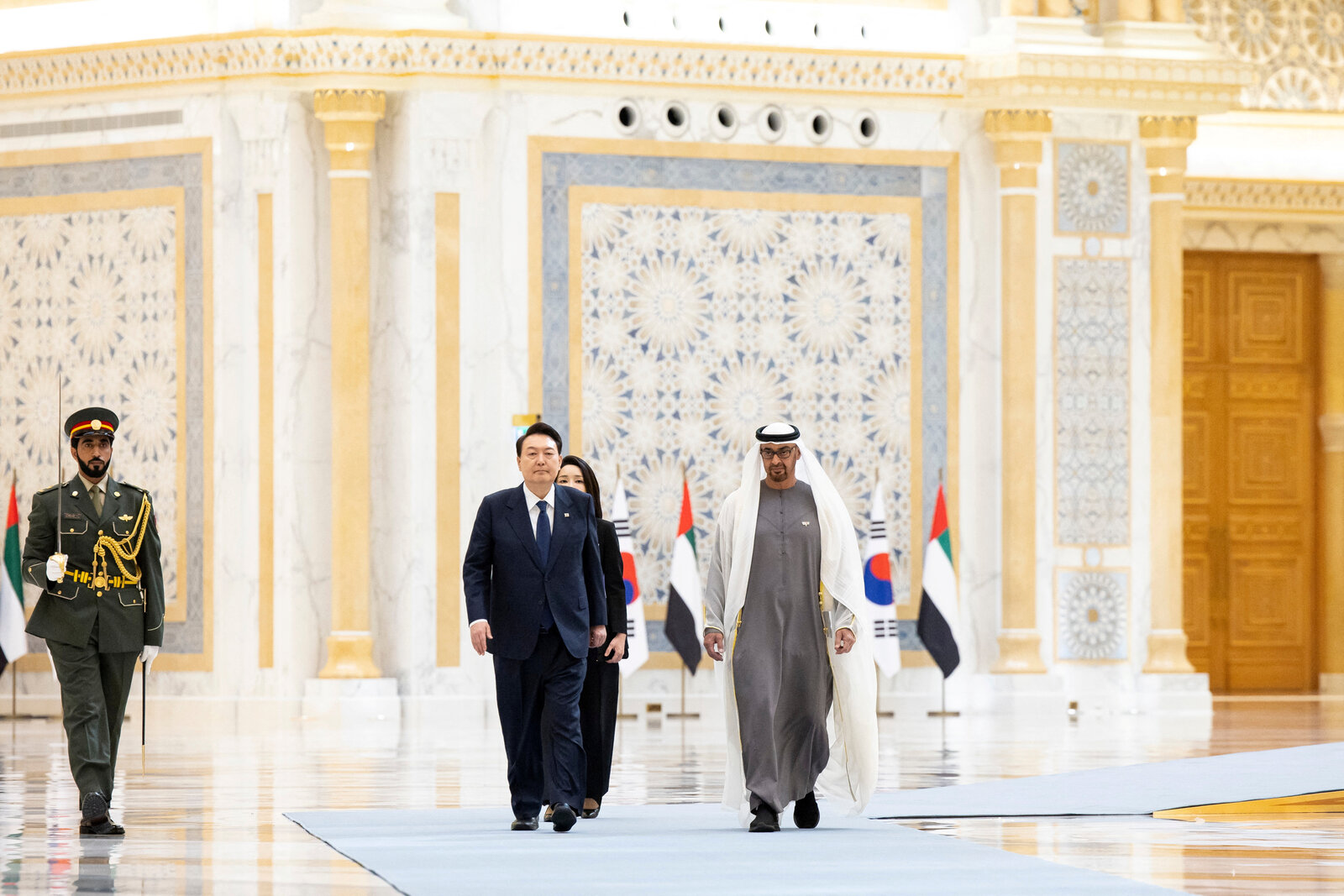
Korea, UAE ink over a dozen MoUs: South Korea and the UAE signed 13 MoUs yesterday, including a comprehensive energy partnership, as part of South Korean President Yoon Suk Yeol’s visit to Abu Dhabi, Yonhap News Agency reports. Signed during Abu Dhabi Sustainability Week, the agreements cover the establishment of a voluntary carbon market, smart farming, and carbon capture, utilization, and storage (CCUS), according to Wam.
Korean ties with the UAE renewables sector have a history: South Korea’s Kepco was awarded the contract to build the UAE’s Barakah nuclear power plant in 2009, which recently approved its operational blueprint for 2023-2026. The South Korean government also announced its intention to import green hydrogen from the UAE by 2027 last week.
The interest in renewables is also expanding regionally: Saudi Arabia’s Public Investment Fund (PIF) signed an agreement with Kepco and four other firms worth some USD 6.5 bn to build a hydrogen and ammonia plant last November. The country also set up an export agreement with Saudi Arabia’s Saudi Exim in December to export green hydrogen and ammonia to the Korea Trade Ins. Corporation (K-Sure) shortly before the world’s first commercial load arrived on Korean shores late in December from Saudi Aramco and Sabic Agri-Nutrients. Over in Egypt, China State Construction Engineering Corp and Korea’s SK Ecoplant are reportedly exploring the possibility of setting up a potential hub for green hydrogen projects in the country.
GREEN HYDROGEN
Masdar partners with Dutch firms to explore hydrogen exports to Europe
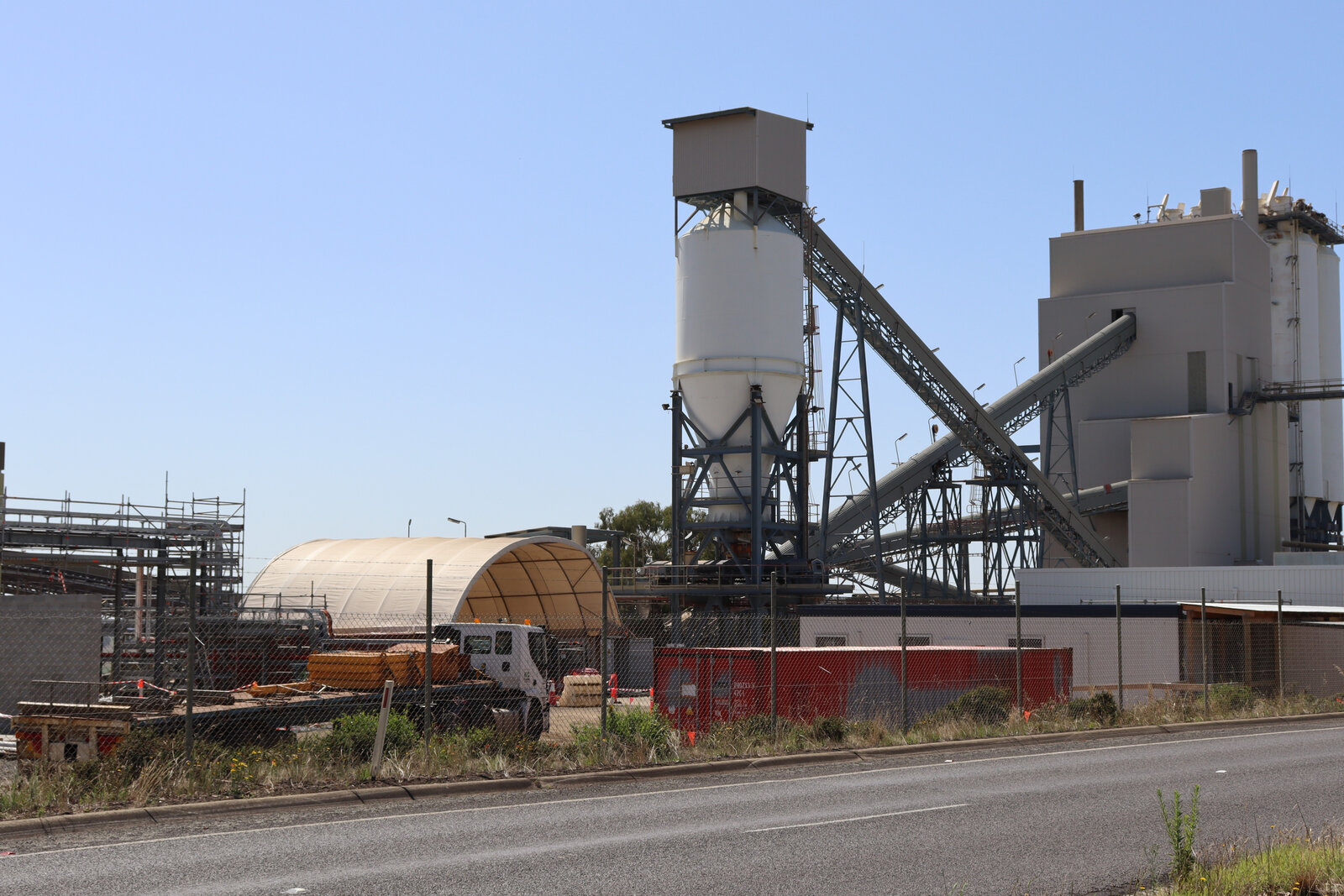
The Netherlands is eyeing green hydrogen imports from the UAE: UAE-based renewables developer Masdar and the Netherlands signed agreements with the Port of Amsterdam, and Dutch firms SkyNRG, Evos Amsterdam, and Zenith Energy to explore the possibilities of green fuel exports to Europe, according to a company statement. The financial details of the agreements and when shipments are expected were not disclosed.
The details: The clean energy source would be produced in Abu Dhabi and then shipped to Holland with plans to supply interested Europe-based contractors with surpluses via trucks, pipeline, and barge transportation networks. The green hydrogen would be used in Dutch sustainable aviation, shipping, and steelmaking industries, the statement notes.
More in the pipeline for transportation: Masdar together with the Port of Amsterdam and the three Dutch firms will also jointly study the development of hydrogen transportation methods, prioritizing the exploration of liquefying hydrogen.
Masdar’s green hydrogen exports are expanding: The renewables company is partnering with Germany’s Uniper to develop a green hydrogen plant in the UAE powered by 1.3 GW of solar energy. The plant is expected to generate green hydrogen by 2026 and the EU wants to import the clean fuel the facility will generate. The location of the plant and the financials of the agreement have yet to be disclosed.
What they said: Masdar is “collaborating with a range of partners” in developing and investing in strategic green hydrogen projects, company representatives said in an emailed statement in response to Enterprise Climate’s request for comment.
And it’s part of a larger plan: The firm is aiming for a renewable energy capacity of at least 100 GW by 2030 with a production quota of up to 1 mn tons of green hydrogen. It ultimately plans to expand its renewable energy portfolio to over 200 GW, a company statement notes, without giving a time frame for this target.
Masdar isn’t the only Emirati company eyeing hydrogen exports: Adnoc sent its first low-carbon ammonia shipment to Europe in September to Hamburg-headquartered copper producer Aurubis in the first of several low-ammonia cargoes bound for Germany. Adnoc is developing a new low-carbon ammonia plant that will produce 1 mn tons per year, aiming to export 25% of the hydrogen it produces to global markets, according to a company statement.
MINERALS
KSA’s mining push continues as Future Minerals Forum wraps up
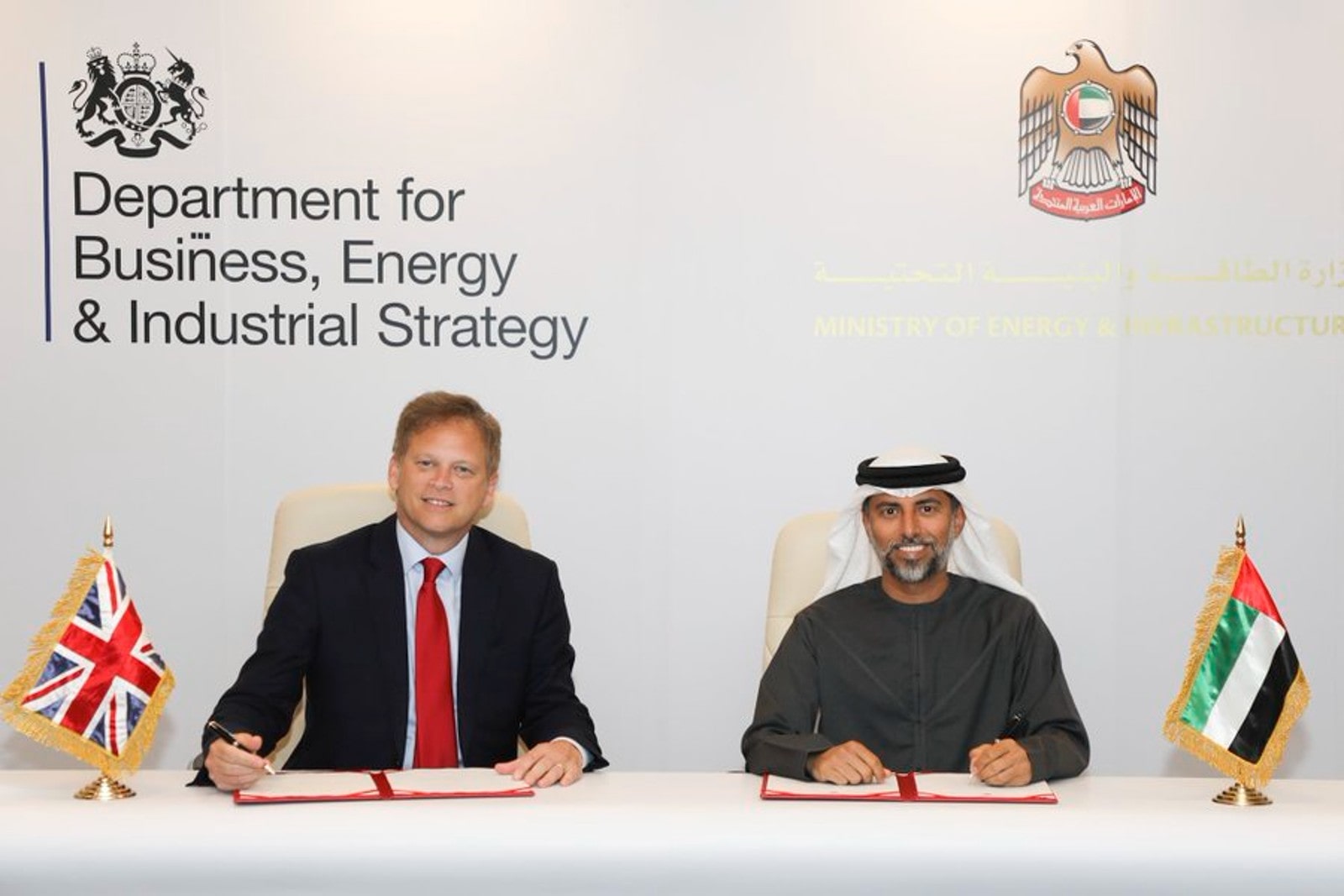
More mining news trickles out of KSA: Mining was still in the spotlight in Saudi Arabia after the Future Minerals Forum wrapped last Thursday. Several partnerships are underway to extract and process key metals and minerals, among them a partnership that could see more British mining companies set up in the kingdom, a partnership with Australia-headquartered European Lithium to build a lithium processing plant, and another with global battery materials company EV Metals to build a production plant for essential EV battery chemicals. The Maaden-PIF JV set up to invest in global mining operations could deploy USD 15 bn in the coming years, sources say.
BUT, FIRST- Could we still be facing a shortage of key metals despite all the handshakes? Much more investment is needed to secure sufficient supplies of crucial energy transition metals like copper and nickel in the next decade, warned a host of executives at the forum, Bloomberg reports. Speakers — including commodity trading group Trafigura CEO Jeremy Weir and mining multinational Rio Tinto chair Dominic Barton — flagged the likelihood of significant price hikes amid an increasingly tight metals market, and warned of “short-termism” in the supply approach, the outlet notes.
SAUDI, UK WILL PARTNER ON CRITICAL MINERALS-
Saudi Arabia and the UK have formed their first-ever partnership on critical minerals, according to a UK government statement, although nothing has yet been put in writing as the countries are set to formalize the relationship “in the coming months,” the statement adds.
What could the partnership look like? The two countries intend to collaborate to diversify sources of critical minerals, the statement notes. This could involve more UK mining firms setting up shop in Saudi, as well as the kingdom investing in the UK’s manufacturing and mining finance sectors, it adds.
Both sides have a vested interest in building critical mineral supply chains: The UK wants to shore up its critical mineral supply chains and reduce its dependence on China — which currently dominates the global market, the statement notes. Meanwhile, Saudi is positioning itself as a global hub for “green metals” and minerals and is working to enhance its phosphate, aluminum, and gold supply chains, Industry and Mineral Resources Minister Bandar Al Khorayef noted in a panel discussion during last week’s forum.
LOTS MORE INVESTMENT COULD BE COMING FOR MAADEN-PIF JV-
Maaden-PIF JV could deploy bns for global investments: The joint venture between Saudi mining company Maaden and the Public Investment Fund (PIF) — that’s being set up to invest in mining assets globally, as announced last week — is reportedly prepared to deploy over USD 15 bn of capital for investments in the coming years, according to unnamed sources quoted by the Financial Times.
This is much more than the figures publicly announced: Maaden and PIF would commit to providing up to SAR 11.9 bn (USD 3.2 bn) for the venture, according to public statements issued last week. But the FT’s sources claim USD 3.2 bn is the amount intended for investment in just the next 12 months. Saudi Arabia “has publicly downplayed the scale of [its] investment plans,” the FT quotes the sources as saying.
SAUDI’S EV BATTERY PRODUCTION GETS A BOOST-
Australia, KSA set up a lithium processing plant: Australian-headquartered and ASX-listed mining exploration and development company European Lithium has signed a non-binding MoU with Saudi Arabia’s Obeikan Investment Group to establish a hydroxide plant to process lithium in Saudi Arabia, it said in a statement (pdf). The plant — designed to process lithium produced at European Lithium’s Wolfsberg Lithium Project in Austria — will operate as a 50-50 joint venture between the two companies, the statement notes. Lithium hydroxide and lithium carbonate are both key raw materials in EV battery production.
Australia’s EV Metals to set up chemical production plant: Saudi Arabia’s Royal Commission for Jubail and Yanbu — an autonomous branch of the Saudi government that manages the kingdom’s industrial cities — signed an agreement with global battery materials company EV Metals to lease 1.27 mn sqm of industrial land in Yanbu to set up a facility to produce key chemicals for EV batteries and renewable energy storage, Trade Arabia reports. Some SAR 3.3 bn (USD 88 mn) will be invested in the project, it added. This is part of a raft of industrial agreements worth a total of SAR 43 bn (USD 11.4 bn) signed on the side of the Future Minerals Forum, the publication added.
OTHER NEWS FROM THE FORUM-
Finland, Angola eyeing closer mining ties with Saudi: Finland’s Deputy Minister for International Trade Nina Vaskunlahti met with Maaden during the forum to discuss the prospect of closer collaboration, she told Arab News last week. Angola also wants to deepen its mining work with the kingdom, as part of upping its own mining of materials including copper, nickel and lithium, Angola’s Ambassador to Saudi Arabia told Arab News last week. Angola and Saudi respective chambers of commerce signed MoUs last week to boost economic ties between the two countries, the outlet adds.
Saudi looks to explore its sources of geothermal energy: Saudi Arabia’s Energy Ministry signed an MoU on Wednesday with the Saudi Geological Survey (SGS) — a government agency tasked with sourcing and storing geological data — to “explore the sources of geothermal energy in the kingdom,” SGS announced in a tweet.
CLIMATE FINANCE
KfW funding will help Tunisia save water + improve sanitation + boost wind energy
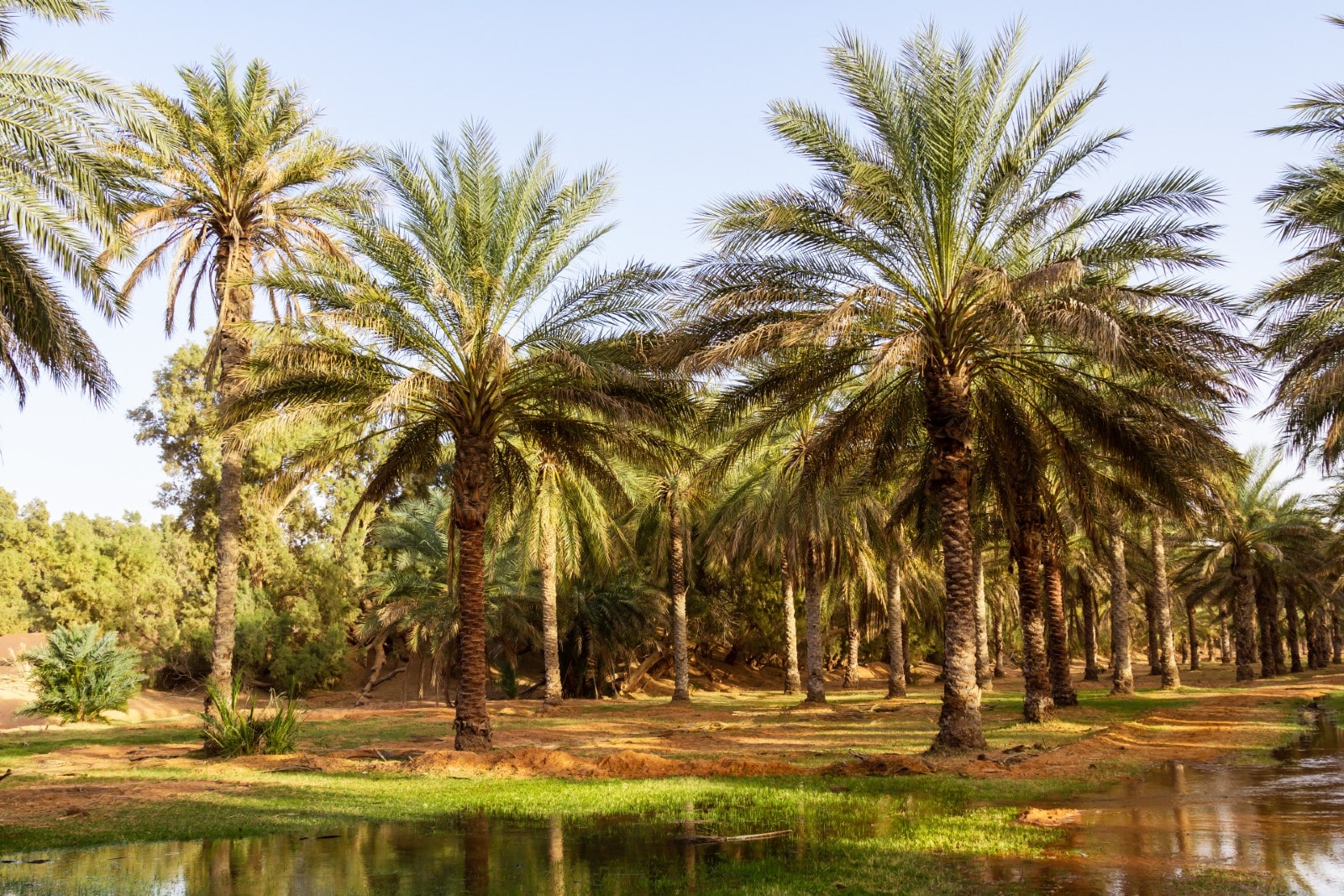
More details on Tunisia’s funding from KfW: Remember that blink-and-you’ll-miss-it announcement about Tunisia getting c. EUR 300 mn from Germany’s KfW? We now know the EUR 315 mn funding Tunisia is receiving from the German state lender KfW will be directed towards water resource management, wind energy and sanitation, according to Tunisian daily La Presse, which published more details on Thursday. Over half of the total EUR 315 mn funding is coming in the form of grants, La Presse adds.
Shoring up Tunisia’s water reserves: EUR 265 mn is going to Tunisia’s Agriculture, Resources and Fisheries Ministry to support five projects aimed at preserving water resources. EUR 204 mn (a EUR 164 mn loan from KfW and a EUR 39.85 mn grant from the EU) is going towards Tunisia’s Storage, Transfer and Flood Protection System improvement program, the news outlet notes. The funds will be used to develop water storage facilities with a combined capacity of 140 mn cubic meters, and protect part of the Medjerda Valley from flooding. Some EUR 38 mn (including an EUR 14.94 grant from the EU) is being allocated to implement the second phase of the Agricultural and Rural Development around Hill Lakes project, which aims to increase water availability. EUR 10 mn will go towards the upgrade of the Laaroussia canal, and EUR 12 mn will be used to implement two drinking water supply projects.
Strengthening wastewater treatment and sanitation: A EUR 20 mn loan from KfW is going to Tunisia’s National Sanitation Office to spend on two ongoing projects: A EUR 15 mn sanitation program that involves revamping existing sanitation systems and constructing wastewater treatment plants and a EUR 5 mn upgrade and extension of existing wastewater treatment plants and pumping stations.
And boosting wind energy production: Some EUR 29.8 mn is going to the state-owned Tunisian Electricity and Gas Company to replace old wind turbines with new ones, upping the Sidi Daoud wind farm’s total capacity to 29-33 MW.
ALSO ON OUR RADAR

KSA inaugurates world’s largest microgrid battery storage facility: Chinese tech firm Huawei launches the first phase of a renewables-powered 1.3k MWh battery energy storage system (BESS) facility in Saudi Arabia’s Red Sea Project (RSP), according to a company statement. The first phase sees 400 MWh of battery storage capacity come online, with no further details on the timeframe for the installation of the remaining 900 MWh. Acwa Power is the developer of the tourism project and has a 50% stake in RSP which will include 50 resorts upon completion in 2030.
Algeria is eyeing more WtE projects: Algeria’s Commission for Renewable Energy and Energy Efficiency signed a partnership agreement with the country’s National Waste Agency to expand Algeria’s waste-to-energy generation capacity, according to a statement. The agreement will see the country ramp up efforts to produce electricity from waste-generated biofuels, Attaqa reports. Algeria’s waste amounts to some 11 mn tons annually resulting in governmental costs of USD 930 mn each year, the news outlet quotes the director of green economy development of the National Waste Agency as saying.
OTHER STORIES WORTH KNOWING ABOUT THIS MORNING-
- The European Commission is earmarking EUR 10 mn for Sudan and EUR 2 mn for Algeria to tackle food insecurity. Some 11.7 mn people are battling with acute hunger in Sudan, and the Ukrainian crisis combined with post-pandemic economic shocks have caused a surge in food insecurity for refugees in Algeria. (Statement)
- Egypt’s Environment Ministry says the second phase of Sharm El Sheikh’s new waste management strategy will come into effect at the end of March. UAE’s Beeah Group and Egypt’s Green Planet were awarded a 10-year contract to revamp Sharm El Sheikh’s waste management system last September. (Statement)
- Saudi aircraft lessor firm AviLease and the Saudi Investment Recycling Company will partner to produce and distribute Sustainable Aviation Fuel globally. (Statement)
- UAE’s Emirates Global Aluminum have launched an Aluminium Recycling Coalition to promote aluminum repurposing activities in the UAE. The coalition will include UAE firms Abu Dhabi Waste Management Company (Tadweer), Bee’ah Tandeef, and others. (Trade Arabia)
ON YOUR WAY OUT

Can we harvest solar energy from space? Caltech launched a prototype solar power satellite into orbit — the Caltech Space Solar Power Demonstrator (SSPD) — earlier this month which will test and send back information on the feasibility of harvesting solar power in space, transferring the energy back to our pale blue dot. The satellite — part of the Caltech Space Solar Power Project (SSPP) — is loaded with 32 kinds of photovoltaic cells to determine which are best suited for use in space, aiming to eventually launch a modular spacecraft to collect sunlight, transform it into electricity, and transmit that electricity back to Earth — expanding electrical access to places with reliable and stable power.
Harvesting solar power isn’t new — but sending it back to Earth is: Solar energy has been the primary means of powering spacecraft since the Vanguard 1 was launched in 1958. The International Space Station is powered using solar arrays mounted on a blanket that convert solar energy to electricity, producing more electricity than the station needs.
And others are looking into it: The UK-based Space Energy Initiative has plans to place a constellation of satellites into high Earth orbit to capture solar energy and beam it back to Earth, the BBC reported last year. In the US, the Air Force Research Laboratory’s Space Solar Power Incremental Demonstrations and Research Project is also working to harvest solar power in space and transmit it back to Earth.
CALENDAR
JANUARY 2023
14-21 January (Saturday-Saturday): Abu Dhabi Sustainability Week, Abu Dhabi, UAE.
16-18 January (Monday-Wednesday): EcoWASTE, Abu Dhabi National Exhibition Center, UAE.
16-18 January (Monday-Wednesday): World Future Energy Summit, Abu Dhabi National Exhibition Center (ADNEC), UAE.
22-24 January (Sunday-Tuesday): Energy & Sustainability Forum, Manama, Bahrain.
January 2023: Bid submission deadline for green hydrogen projects to Hydrogen Oman (Hydrom).
FEBRUARY 2023
6-8 February (Monday-Wednesday): Saudi International Marine Exhibition and Conference, Hilton Riyadh, Saudi Arabia.
4-9 February (Saturday- Wednesday) International Association for Energy Economics’ International Conference, King Abdullah Petroleum Studies and Research Center, Riyadh, Saudi Arabia.
13-15 February (Monday-Wednesday): The Egypt Petroleum Show, Cairo, Egypt.
21-22 February (Tuesday-Wednesday): The Arab Green Summit, Dubai, UAE.
21-23 February (Tuesday-Thursday): World Environment, Social and Governance (ESG) Summit, Dubai, UAE.
MARCH 2023
15-19 March (Wednesday-Sunday): Qatar International Agricultural and Environmental Exhibition, Doha, Qatar.
MAY 2023
1-4 May (Monday-Thursday): Arabian Travel Market, Dubai World Trade Centre, Dubai, UAE. Register here.
2-7 May (Tuesday-Sunday): Salon International de l’Agriculture au Maroc (SIAM), Meknes, Morocco.
16-18 May (Tuesday-Thursday): Seatrade Maritime Logistics Middle East, Dubai World Trade Center, Dubai, UAE.
29-31 May (Monday-Wednesday): Electric Vehicle Innovation Summit, Abu Dhabi National Exhibition Centre, Abu Dhabi, UAE.
JUNE 2023
Bloomberg New Economy Gateway Africa Conference, Marrakesh, Morocco.
1-3 June (Thursday-Saturday): Envirotec and Energie Expo, UTICA, Tunis, Tunisia.
SEPTEMBER 2023
Chariot Limited and Total Eren’s feasibility study on a 10 GW green hydrogen plant in Mauritania to be completed.
OCTOBER 2023
2-4 October (Monday-Wednesday): WETEX and Dubai Solar Show, Dubai World Trade Centre, Dubai, United Arab Emirates.
NOVEMBER 2023
6-17 November (Monday-Friday): The UAE will host COP28.
EVENTS WITH NO SET DATE
End-2022
KSA’s Neom wants to tender three concrete water reservoir projects to up its water storage capacity by 6 mn liters.
2023
Early 2023: Egypt’s KarmSolar to launch KarmCharge, the company’s EV charging venture.
1Q2023: Oman will award two blocks of land for green hydrogen projects in Duqm, Oman.
Mid-2023: Sale of Sembcorp Energy India Limited to consortium of Omani investors to close.
Phase C of the 900-MW of the Mohammed bin Rashid Al Maktoum Solar Park in Dubai to be completed.
Saudi Basic Industries Corporation (Sabic) steam cracker furnace powered by renewable energy to come online.
4Q2023: Oman to award four blocks of land for green hydrogen projects in Thumrait, Oman.
2024
End-2024: Emirati Masdar’s 500 MW wind farm in Uzbekistan to begin commercial operations.
QatarEnergy’s industrial cities solar power project will start electricity production.
First 1.5 GW phase of Morocco’s Xlinks solar and wind energy project to be operational.
2025
Second 1.5 GW phase of Morocco’s Xlinks solar and wind energy project to be operational.
UAE to have over 1k EV charging stations installed.
2026
1Q 2026: QatarEnergy’s USD 1 bn blue ammonia plant to be completed.
End-2026: HSBC Bahrain to eliminate single-use PVC plastic cards.
Iraq’s Mass Group Holding wants to invest EUR 1 bn on its thermal plant Mintia in Romania to have 62% of run on renewable energy, while expanding its energy capacity to at least 1.29k MWh.
2027
MENA’s district cooling market is expected to reach USD 15 bn.
2030
UAE’s Abu Dhabi Commercial Bank (ADCB) wants to provide AED 35 bn in green financing.
UAE targets 14 GW in clean energy capacity.
Tunisia targets 30% of renewables in its energy mix.
Qatar wants to generate USD 17 bn from its circular economy, creating 9k-19k jobs.
Morocco’s Xlinks solar and wind energy project to generate 10.5 GW of energy.
2035
Qatar to capture up to 11 mn tons of CO2 annually.
2045
Qatar’s Public Works Authority’s (Ashghal) USD 1.5 bn sewage treatment facility to reach 600k cm/d capacity.
2060
Nigeria aims to achieve its net-zero emissions target.
Enterprise Climate is available without charge thanks to the generous support of HSBC (tax ID: 204-901-715), the leading corporate and retail lender in Egypt; and Infinity Power (tax ID: 305-170-682), the leading generator and distributor of renewable energy in Africa and the Middle East. Enterprise Climate is delivered Mon-Thurs before 4 am UAE time. Were you forwarded this copy? Sign up for your own delivery at climate.enterprise.press. Contact us on climate@enterprisemea.com.

